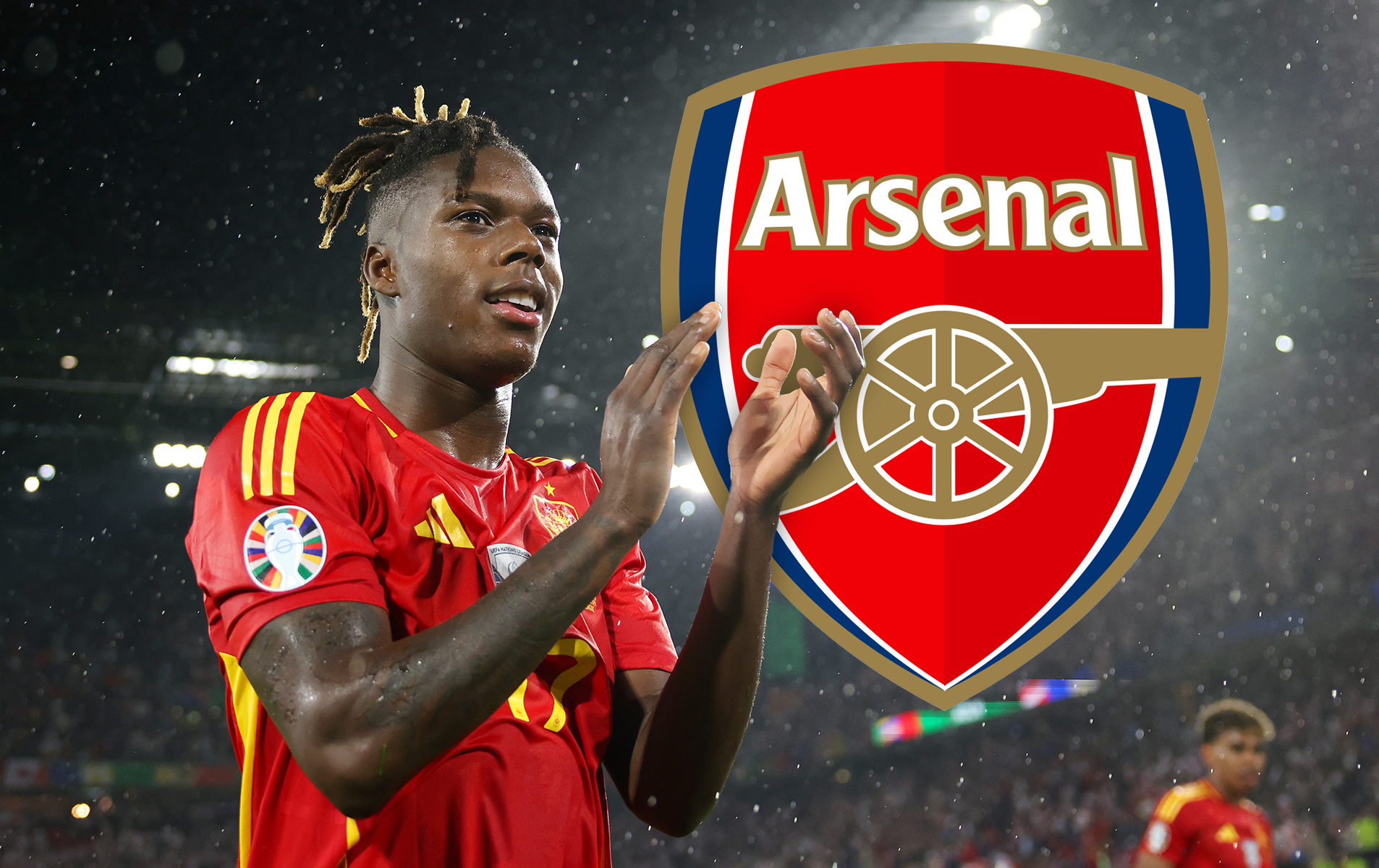John Bostock: How I rebuilt my career
John Bostock made his professional debut at 15, but was paralysed by a fear of failure during five years with Tottenham. He tells FFT how he has rebuilt his career and confidence with RC Lens

You made your Crystal Palace debut at 15 – did you feel pressure?
I didn’t see it as pressure when I was 15 – it was just a dream come true. There’s no expectation when you’re 15, you’re just buzzing to get an opportunity. I only felt the pressure I put on myself. The expectation comes when you’re 17 or18 and people ask ‘why isn’t he producing what we expected?’ Questions start to come and then it’s up to you to reevaluate things.
How did your life change after your debut?
At the time I couldn’t comprehend how big a deal it was. I went to school the next day and that was interesting. There were newspapers coming to school to take pictures. A lot happened very quickly. You have to adapt but that’s football, you’re judged on what you do on the pitch, regardless of your age. I was lucky; I had great people around me who told me I hadn't achieved anything yet.
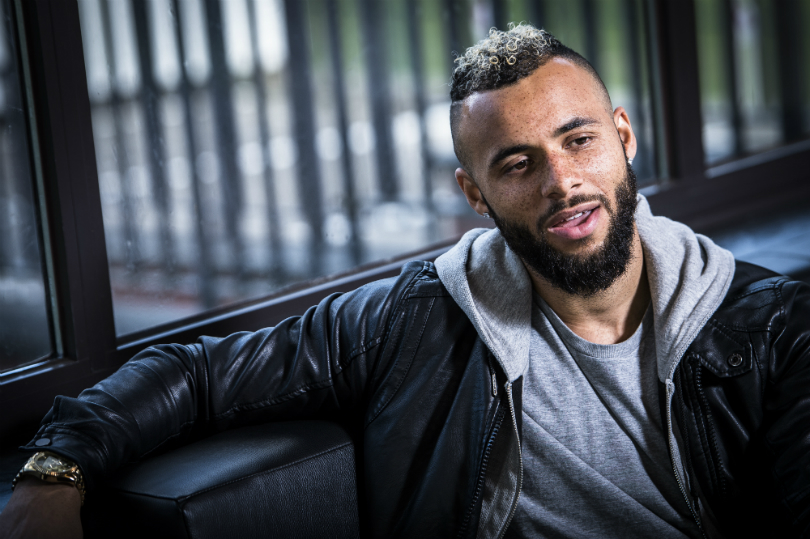
Was your image unfairly soured after you left Tottenham?
I think football is a beautiful game and everyone has an opinion. I was very young when I went to Tottenham and at that time I felt that was the best move for my career. I don’t hold any bitterness towards managers, chairmen or the media for things that were said at the time. It hurt a little because my character was questioned. My family and friends couldn’t believe what was being written about me. It taught me to believe in my own character – I knew who I was and that made me mature very quickly.
Did your confidence take a knock during your five years at Spurs?
I had the chance to mix with some of the best young players in Europe - players like Luka Modric and Gareth Bale. There was a plan of progress for me. However, when things don’t go well for you, that’s a massive test of your strength of character. I made my debut; I was training with the first team and scored goals for the reserves. All of a sudden I was dropped back into the under-18s and that was the biggest mental test for me, I thought I’d already proven myself beyond that level. But the club thought that was best for my development. That was tough.
The biggest battle for a footballer is dealing with disappointment and not fulfilling your own expectations. Dealing with failure. Nobody goes on to the pitch and wants to have a bad game, but dealing with not playing well, a knock of confidence and bad form is tough. At Spurs it felt like the worst season of my life. I couldn’t break through; my confidence was knocked because of the lack of opportunity. People were saying things about me. Sometimes it just doesn’t work out right. But there are many ways to achieve. Just because it didn’t work the way I thought it would, doesn’t mean the dream is over. I think tests of your character develops perseverance.
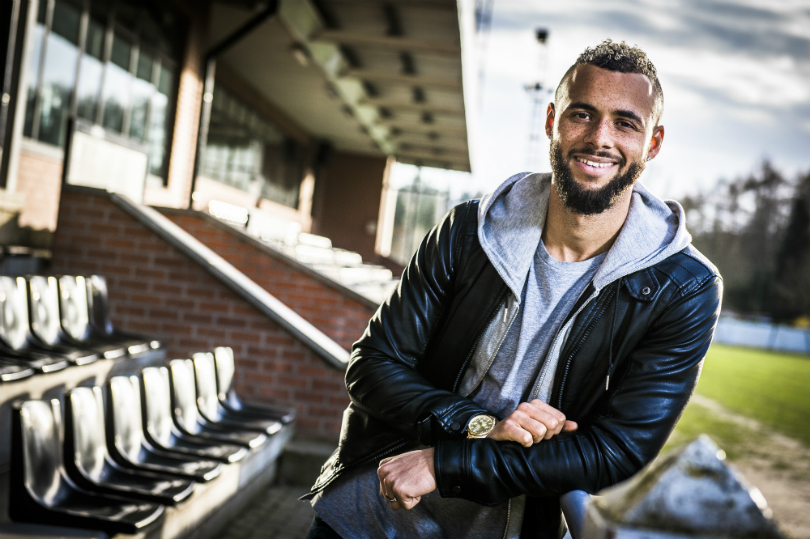
How did your lack of confidence affect your game?
I felt like my every move was being judged. I didn’t have the freedom of knowing I’d play the following week, and I was still trying to prove myself, so I began to think that if I made one mistake, I wouldn’t play. You think you have to eat and sleep absolutely perfectly; nothing can be out of place on the pitch. I became scared to fail and make mistakes. Once you start thinking like that as an athlete, you’re overthinking. On the pitch you want to not think and just play naturally. When it comes to the mind, the mind is so powerful. You have to be able to relax in high-pressure moments. That separates elite athletes from those who aren’t at the top. You overcomplicate the simple things. It wasn’t until I moved to Belgium and I had the platform to play that I had a chance to play with freedom again.
You’re a very technical player – did managers find it hard to trust you on the pitch when you were younger?
Possibly, I was a central midfielder growing up but five or six times I went on loan, I played out wide. They maybe didn’t think they could risk me in midfield because I was a young lad. Maybe they thought I was a luxury player. But the modern day footballer has to be able to do both things. If someone is good at something, though, you should enhance that, not question what he can’t do. I just wanted to find somewhere where I could be appreciated. I searched for that and the door opened for me in Belgium and then in France with Lens.
Get FourFourTwo Newsletter
The best features, fun and footballing quizzes, straight to your inbox every week.
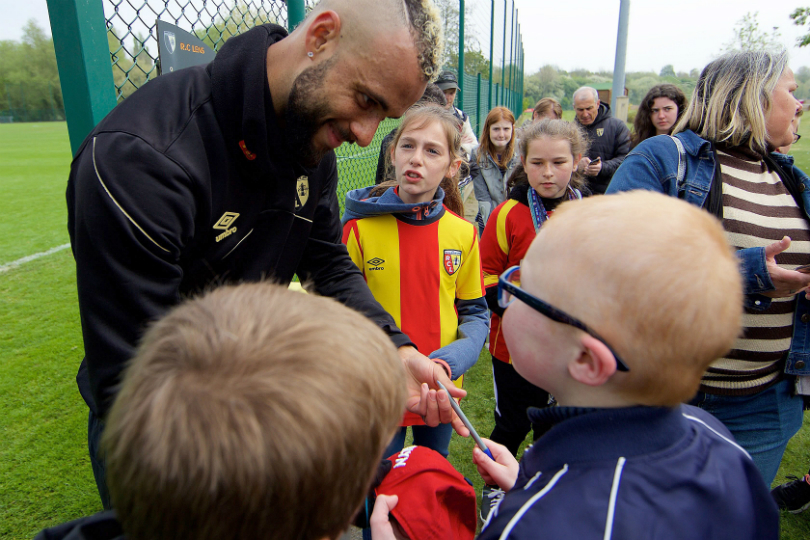
Did life in an academy prepare you for these challenges?
Crystal Palace was one of the best academies in England but the way my career started wasn’t the norm. I played a first team game before I played a reserve game. I was training with the first team aged 14. In football everyone wants results but coaches have told me, who you are as a person is more important and that’s changed my outlook, it’s given me confidence. My route wasn’t a normal one and I wasn’t prepared, I had to learn on the job almost.
Was it a case of too much, too soon?
The way I chose to live my life wasn’t how people think. I never went out clubbing and never touched alcohol. I tried to make sure everything in my life was as good as it could possibly be. I over thought things at times. I didn’t want to look back and think ‘I could’ve done this or that.’ I didn’t reap the rewards of my effort but because of my mindset back then, I’m now reaping those rewards. Some of the sacrifices I’ve made are now paying off.
Why do you think people often have a certain perception of footballers?
When I first met my wife she didn’t know anything about football. When I told her I was a footballer she was immediately put off. People think young guys are well paid and their life is easy. I can understand that. We’re not saving lives – other jobs are more important. But it’s a popular game and unfortunately the actions of some footballers mean others are painted with a dark brush. But if you give any human being that sort of attention, money, pressure and lifestyle at a young age, they will struggle to make the right decisions. Fifteen years ago footballers lives were a lot more private. But everything is under a microscope now. It’s more transparent. People see how footballers live their life.
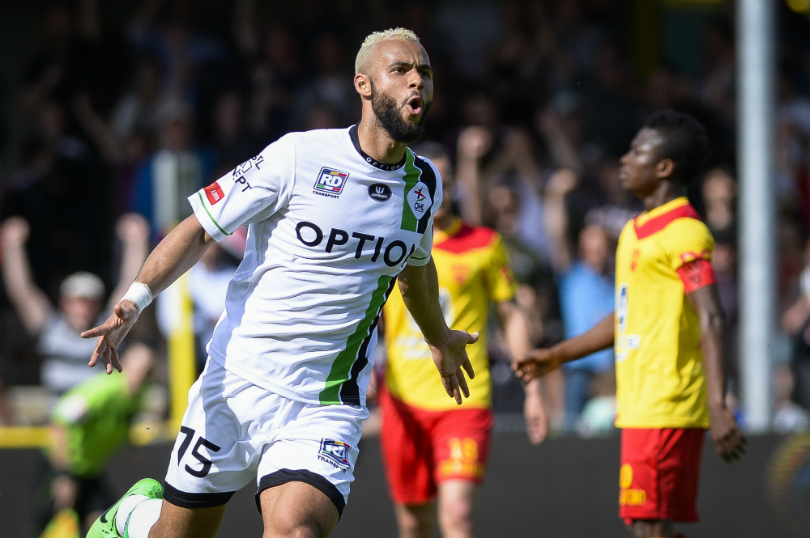
Does social media add pressure?
My experience has been largely positive. I’ve been taught to give back to fans. I was a season ticket holder at Crystal Palace and know that a signature from a player means a lot. I try to give back to fans through Twitter. At Lens we’ve got some of the best set of fans in France and I try to connect with them as much as possible. When I made my debut at Palace 10 years ago, at the back of the bus people were playing cards and reading newspapers. Now they’re on iPhones, ipads, or wearing headphones. It’s a shame, you see everyone with their heads down in their own little world and conversation does suffer, but times change.
Has that affected English football? Are we still creating leaders?
I grew up watching players like Roy Keane, Steven Gerrard and Patrick Vieira, but the game has changed. The leader now is the team. Football has changed just like society has changed. They were players who went in for big tackles. When I was younger, players would dig you out and come down hard on you if you weren’t playing well, but that has slowly changed. You don’t see it as much. It’s a change in time and a change in culture.
